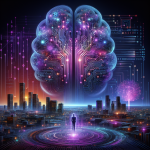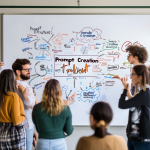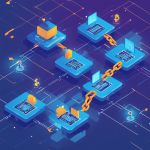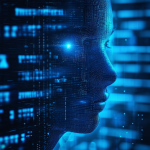Have you ever wondered about Artificial Intelligence (AI) and how it’s changing the world around us? Imagine having a robot friend who could help with your homework, or a computer that could give doctors advice on how to treat illnesses. That's the kind of future AI is creating – exciting, right? But, as with all great things, there are some tricky questions we need to think about.
AI is like a very advanced tool. It can do jobs quickly and without getting tired, remember loads of information at once, and even make decisions based on what it has learned. This means we can use AI to do amazing things, from making our phones smarter to helping scientists solve big mysteries about the universe.
However, as AI starts doing more and more things that humans used to do, we need to think carefully about how this changes our lives. For example, what happens to people whose jobs are taken over by robots? How do we make sure that AI is fair to everyone? And how do we keep control over machines that think for themselves?
In this blog post, we're going to explore these big questions. We'll look at how AI started, how it fits into our daily lives now, and what it might mean for our future. We'll talk about the good stuff and the challenges too. Most importantly, we'll think about how we can make sure that as AI becomes a bigger part of our world, it helps make life better for everyone.
So, whether you’re super into technology or just curious about how AI might affect your life, there’s something in here for you. Let’s dive into the fascinating world of AI together and explore what our future with smart machines might look like!

Benefits of AI Transition for Economy and Society
The advent of artificial intelligence (AI) is transforming industries, redefining productivity, and reshaping our future. From enhanced efficiency across various sectors to significant improvements in healthcare, personalized education, and environmental sustainability, AI's potential to benefit people and society is immense. Let's delve into these transformative impacts:
Enhanced Productivity and Efficiency
AI's role in augmenting productivity cannot be overstated. Across sectors such as agriculture, manufacturing, and services, AI applications are automating routine and complex tasks that were historically time-consuming and prone to human error. In agriculture, AI-driven precision farming techniques help in monitoring crop health, predicting harvest times, and optimizing resources - resulting in higher yields with less wastage. Manufacturing lines, once strictly manual arenas, now leverage AI for predictive maintenance and quality control, ensuring faster production rates and error-free outputs. In the service industry, AI tools enhance customer service through chatbots and automated systems, reducing wait times and improving user experience. This automation not only improves efficiency but also allows human workers to focus on more strategic, creative tasks, thereby enhancing job satisfaction and productivity.
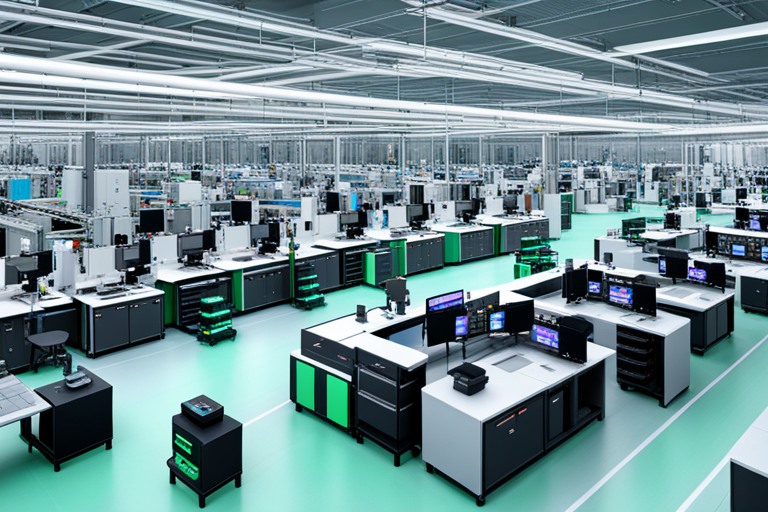
Improvements in Healthcare
Healthcare is witnessing a revolution with the integration of AI. Diagnostic procedures have become more accurate and significantly faster, thanks to AI algorithms capable of detecting diseases from images such as X-rays and MRIs with a precision that rivals, and sometimes surpasses, human experts. In personalized medicine, AI's data analysis capabilities enable the development of treatment plans tailored to the individual genetic makeup of patients, improving treatment outcomes. Furthermore, AI plays a crucial role in patient care management, streamlining operations in hospitals, managing patient data effectively, and monitoring patient conditions in real-time, all of which contribute to better health outcomes and increased accessibility to medical services.
Education Personalization
The traditional "one size fits all" approach to education is being challenged by AI's ability to tailor learning experiences to the individual needs of students. Through AI systems, educators can now identify each student's learning patterns, strengths, and weaknesses, enabling them to craft personalized learning plans. This means resources can be allocated more efficiently, targeting areas where students struggle while allowing advanced learners to progress at their own pace. Additionally, AI-driven platforms offer access to educational materials across the globe, breaking geographical and socioeconomic barriers to education. The result is a more engaging, effective, and accessible educational system that could dramatically increase societal literacy rates and knowledge acquisition.
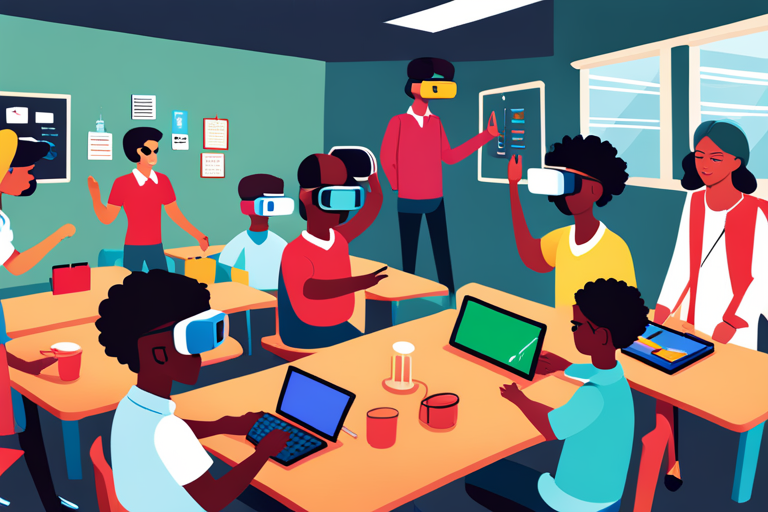
Environmental Monitoring and Protection
AI's impact extends to global environmental efforts, offering unprecedented tools for climate modeling, biodiversity monitoring, and sustainable management of natural resources. By processing vast amounts of data from satellite images, sensors, and other sources, AI provides accurate predictions about climate patterns, extreme weather events, and their potential impacts. This information is vital for making informed decisions about disaster preparedness and mitigating climate change effects. AI also plays a pivotal role in biodiversity by monitoring wildlife and tracking illegal activities such as poaching and deforestation. In managing natural resources, AI technologies optimize the use of resources like water and energy, promoting sustainability.
In summary, the transition to the AI era is set to redefine the contours of how we live, work, and interact with our environment. While challenges in terms of ethics, privacy, and employment displacement remain, the benefits of AI for people and society promise a future of enhanced productivity, improved health outcomes, personalized education, and environmental sustainability. As we navigate this transition, it's crucial to foster an inclusive dialogue about how best to harness AI's potential while mitigating its risks, ensuring a future that benefits all of humanity.

Costs of AI Transition
The transformative wave of artificial intelligence (AI) carries with it not only advancements but also significant challenges that reflect on employment, economic structures, societal dynamics, and mental health. As we steer through the transition into the AI era, understanding these costs is crucial for developing comprehensive strategies to mitigate adverse effects.
Job Disruptions and the Automation of Work
The impact of AI and automation on employment presents a nuanced landscape. While there's an evident risk of job displacement in sectors such as manufacturing, transport, and customer service due to automation, it's essential to distinguish between displacement, job enhancement, and the creation of new jobs. Automation does not merely eliminate roles but also transforms them, necessitating a shift in workers' skill sets to complement machine capabilities. Sectors like healthcare and education may see AI as enhancing efficiency and efficacy rather than replacing human jobs. However, the advent of AI also heralds the creation of entirely new categories of employment, focusing on AI development, maintenance, and ethical governance. Despite these opportunities, sectors heavily reliant on routine tasks face an immediate risk of displacement, intensifying the need for strategic workforce planning and upskilling initiatives.
Economic Inequality and the Digital Divide
A pivotal concern with the rise of AI is the exacerbation of economic disparities and the digital divide. The benefits of AI advancements disproportionately favor those at the forefront of technology and innovation—large tech companies and individuals with access to cutting-edge tools and education. This disparity leaves behind vast swathes of the global population without access to digital technologies or the skills to leverage them, notably in less digitized regions or sectors. Such a divide risks deepening existing economic inequalities, as wealth and opportunities cluster around AI hubs, further marginalizing peripheral communities and developing economies.
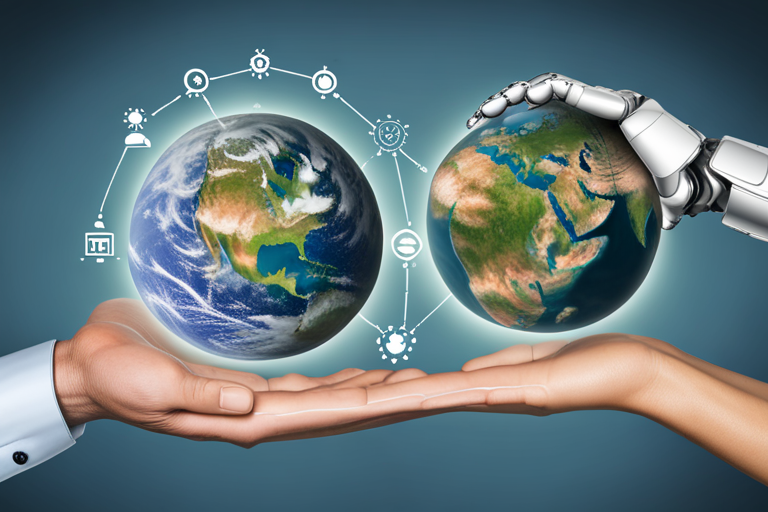
Skill Gaps and Workforce Transitions
Transitioning to an AI-driven economy underscores the challenge of skill gaps within the workforce. As automation assumes routine tasks, the demand shifts towards higher cognitive skills, emotional intelligence, and technological proficiency. Workers displaced from traditional roles may find themselves ill-equipped for the new landscape, where even entry-level positions require familiarity with technology far beyond their current expertise. The uncertainty of shifting to new types of employment places a significant strain on individuals, highlighting the urgent need for comprehensive reskilling programs and educational reforms to prepare current and future generations for the evolving job market.
Societal and Psychological Impacts
Beyond economic and employment concerns, the integration of AI into daily life reshapes social interactions and personal well-being. The increasing role of algorithms in decision-making processes, from social media feeds to employment selections, raises profound privacy concerns and questions regarding autonomy and bias. Moreover, as the line between work and leisure blurs with the ubiquity of digital connectivity, individuals may experience shifts in mental health dynamics, grappling with isolation, burnout, and the erosion of boundaries between personal and professional life. Understanding and addressing these psychological and societal costs are paramount in creating an inclusive, human-centric AI future.
In conclusion, while the AI transition promises unprecedented opportunities for advancement, it also introduces complex challenges across the spectrum of employment, economic inequality, skill acquisition, and societal well-being. Addressing these costs requires a coordinated effort from policymakers, educators, industry leaders, and communities to foster an AI future that maximizes benefits while minimizing its drawbacks.
Navigating the Transition: Strategies for Maximizing Benefits and Mitigating Costs
As we stand on the cusp of the AI revolution, the path forward demands a careful balance between leveraging the potential advantages of artificial intelligence and addressing its inherent challenges. Below, we explore multifaceted strategies aimed at achieving this equilibrium.
Policy Interventions and Social Safety Nets
To mitigate the adverse effects of AI-induced disruptions in the workforce, comprehensive policy interventions and social safety nets are essential. Universal Basic Income (UBI) presents a fascinating approach to providing financial security to all citizens, irrespective of employment status, thus cushioning the economic impact of job loss due to automation. Moreover, retraining programs tailored to the evolving job landscape can offer displaced workers a pathway to new careers in emerging sectors. Transitional supports, such as job placement assistance and wage insurance, could further smooth the transition, helping individuals navigate the uncertainties brought about by rapid technological change. These measures, designed with agility and scalability in mind, can provide both immediate relief and long-term sustainability in the workforce.
Investing in Education and Lifelong Learning
At the heart of adapting to AI advancements lies the imperative to overhaul our education systems. This revamp must prioritize STEM education, alongside cultivating skills in critical thinking and creativity, to prepare individuals for the complexities of the future job market. Furthermore, fostering a culture of lifelong learning becomes crucial in keeping pace with technological progress. By investing in flexible learning platforms and continuous professional development opportunities, we can empower the workforce to stay relevant and competitive. Such an approach not only benefits individuals but also drives innovation and economic growth.
Promoting Inclusive Growth
The benefits derived from AI technology must be widely disseminated to ensure inclusive growth. Addressing the digital divide is a critical component of this strategy, requiring concerted efforts to extend access to digital infrastructure and AI technologies across underrepresented and marginal communities globally. Initiatives aimed at democratizing AI education and resources can foster equitable opportunities for all, reducing disparities and promoting a sense of shared progress. Ensuring that AI development is inclusive not only enhances social cohesion but also broadens the pool of talent contributing to technological advancements.
Public-Private Partnerships for Responsible AI Development
The path to responsible AI development is best traveled together, with public-private partnerships (PPPs) serving as vital conduits for collaboration. By uniting the strengths of governments, industries, academia, and civil society, these partnerships can cultivate an ecosystem that nurtures ethical AI research and application. Examples of such collaborations include joint ventures to set global standards on AI ethics and privacy, funding for interdisciplinary research on AI’s societal impacts, and public advocacy campaigns to educate the masses on AI literacy. These alliances ensure that AI advances in a manner consistent with societal values and priorities, safeguarding against unintended consequences.

Conclusion: Embracing a Balanced View of AI’s Future
As we stand at the precipice of a new era defined by artificial intelligence, it is crucial to acknowledge the dual-edged nature of AI's impact on work and society. AI holds unparalleled potential to drive significant benefits across countless domains—enhancing productivity and efficiency in the workplace, revolutionizing healthcare with improved diagnostics and patient care, personalizing education to cater to individual learning needs, and enabling more effective environmental conservation efforts. These advancements promise to reshape our world, offering solutions to some of our most pressing challenges.
However, this optimistic vision is tempered by the reality of potential job disruptions and widening socio-economic inequalities. The automation of work, while streamlining operations and reducing errors, also threatens to displace millions of jobs, particularly in sectors most susceptible to automation. Moreover, the benefits of AI are not uniformly distributed, risking exacerbation of the digital divide and creating disparities that could leave large segments of the global population at a disadvantage.
In the face of these challenges, the critical role of proactive strategies and collaborative efforts becomes abundantly clear. To harness AI's potential while safeguarding against its risks, a multifaceted approach is required—one that encompasses policy interventions, educational reform, investment in lifelong learning, and the promotion of inclusive growth. Public-private partnerships embody this collaborative spirit, fostering responsible AI development that aligns with societal values and priorities.
By adopting such measures, we can ensure a future where technology serves humanity’s broadest interests, balancing the scales between innovation and equity. The transition into the AI era is not merely about technological advancement; it is a profound opportunity to reflect on what kind of future we wish to create. Embracing a balanced view of AI’s future underscores the importance of steering this powerful tool in a direction that uplifts all segments of society, minimizing harms and maximizing benefits. As we navigate this complex landscape, our collective actions today will shape the world for generations to come, making it imperative that we proceed with both ambition and caution.
Call to Action: Shaping Our AI Future Together
As we navigate the transformative landscape of artificial intelligence, it is imperative that we engage in open, inclusive dialogues about the role AI will play in shaping our future. Every stride forward in AI technology not only marks a leap in human innovation but also delineates the path we tread towards the future of work, education, and society at large.
The dawn of the AI era presents an unparalleled opportunity for collective action and shared responsibility. It beckons us to come together—policymakers, technologists, educators, and citizens—to participate actively in shaping policies and education systems that reflect an inclusive, equitable vision for our future with AI.
So, how could WE be part of?
- Engage in Conversations: Start discussions within your communities, workplaces, and social networks about the impact of AI. By exploring diverse perspectives, we can uncover varied implications of AI across different societal segments.
- Educate Yourself and Others: Seek out resources to better understand AI, its potential benefits, and its challenges. Knowledge is power, and by sharing this knowledge, we empower ourselves and others to contribute meaningfully to the AI dialogue.
- Advocate for Inclusive Policies: Support and advocate for policies that aim to minimize inequalities and ensure that the benefits of AI are distributed broadly. Contact your representatives, participate in public forums, and make your voice heard on the importance of equitable AI development.
- Contribute to Responsible AI Development: Whether you're in the field of AI or simply an engaged citizen, consider how you can contribute to the development of ethical, responsible AI. This could range from supporting organizations working on AI for social good, to advocating for ethical practices in your workplace.
- Empower through Education: Support initiatives aimed at reforming education systems to prepare future generations for the complexities of living and working alongside AI. Champion lifelong learning and the acquisition of new skills, not just for yourself but for those around you.
This is a pivotal moment in history, where the decisions we make and the actions we take will resonate through generations. The future of AI is not predestined—it is up to us to shape it. Let us come together to ensure that as we advance technologically, we also progress socially and ethically, moving towards a future where AI serves to enhance the human experience for all. Your voice, your actions, and your engagement are vital in this journey. Let's embark on this path together, creating a legacy of a thoughtful, inclusive, and equitable AI era.








